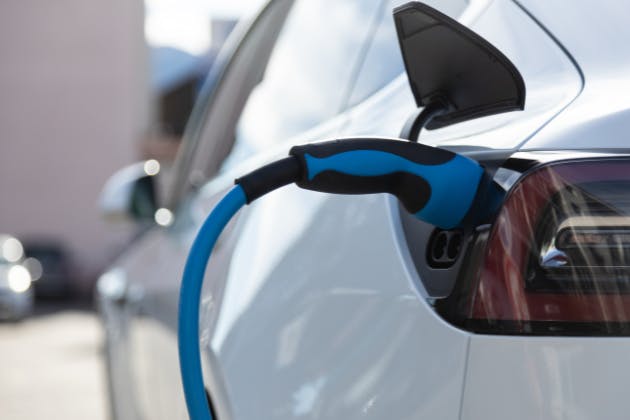Transportation is being revolutionised by electric cars (EVs), and as more people transition to EVs, it becomes increasingly important to comprehend EV charging. Now let's examine some commonly asked issues concerning EV charging.
You can also speak to our electricians in Kent, Folkestone, Romney, Hythe, or the surrounding areas by calling 07971 857475.
Frequently Asked Questions
How Does Electric Car Charging Work?
Transferring electrical energy from a power source to your car's battery is known as electric vehicle charging. There are three speeds for chargers: slow, fast, and rapid. Rapid chargers can reach an 80% charge in minutes, whilst slow chargers require hours.
What Powers Electric Car Charging Stations?
The grid provides the electricity needed to run charging stations. Cleaner charging can also be facilitated by renewable energy sources like wind and solar power.
How Long Does It Take to Charge a Car Battery?
The kind of charger and the battery capacity of your automobile affect how long it takes to charge. Rapid chargers at public stations may charge your battery much more quickly than slow chargers (home chargers), which take many hours to complete.
What Does It Cost to Charge an Electric Car?
The charger speed and your power tariff determine how much it will cost to charge. An 80% charge using a fast charger should cost you, on average, between £7 and £10.
How Often Do You Have to Charge an Electric Car?
It is contingent upon both battery capacity and driving style. To guarantee a full battery every morning, the majority of EV owners charge their vehicles overnight at home. Longer trips benefit from public charging.
Where Can I Charge My Electric Car?
- Install a home EV charger for home charging. Find out whether you qualify for any government funds to help with the cost of installation.
- Office Charging: A few companies provide charging in the office. Seek financial assistance through the Workplace Charging Scheme (WCS).
- Public Charging: Service stations, parking lots, supermarkets, and other handy places often have charging stations available.
How Much Maintenance Does an EV Charger Need?
EV chargers need little upkeep. It is sufficient to do sporadic cleaning and routine visual checks. Software upgrades may be necessary for smart chargers.
Recall that availability to charging will increase together with the expansion of EV infrastructure. Remain aware, charge sensibly, and relish driving without emitting any emissions!
What Are the Different Types of Electric Vehicle Chargers?
- Slow chargers (home charging): An easy method to charge your electric vehicle overnight is using one of these chargers, which are usually placed in homes. They feature a lower power output and are appropriate for daily usage.
- Fast chargers (Public Spaces): Compared to slow chargers, fast chargers provide faster charging periods and are located in public spaces including parking lots, shopping malls, and offices.
- Rapid chargers: These powerful chargers can finish charging an 80% battery in around half an hour. They are frequently seen around long-distance routes.
Want to speak to an expert electrician?
If you have any questions, please call us today on 07971 857475 or use our contact form. One of our electricians in Folkestone, Kent, Hythe, and the nearby areas will be happy to help.



